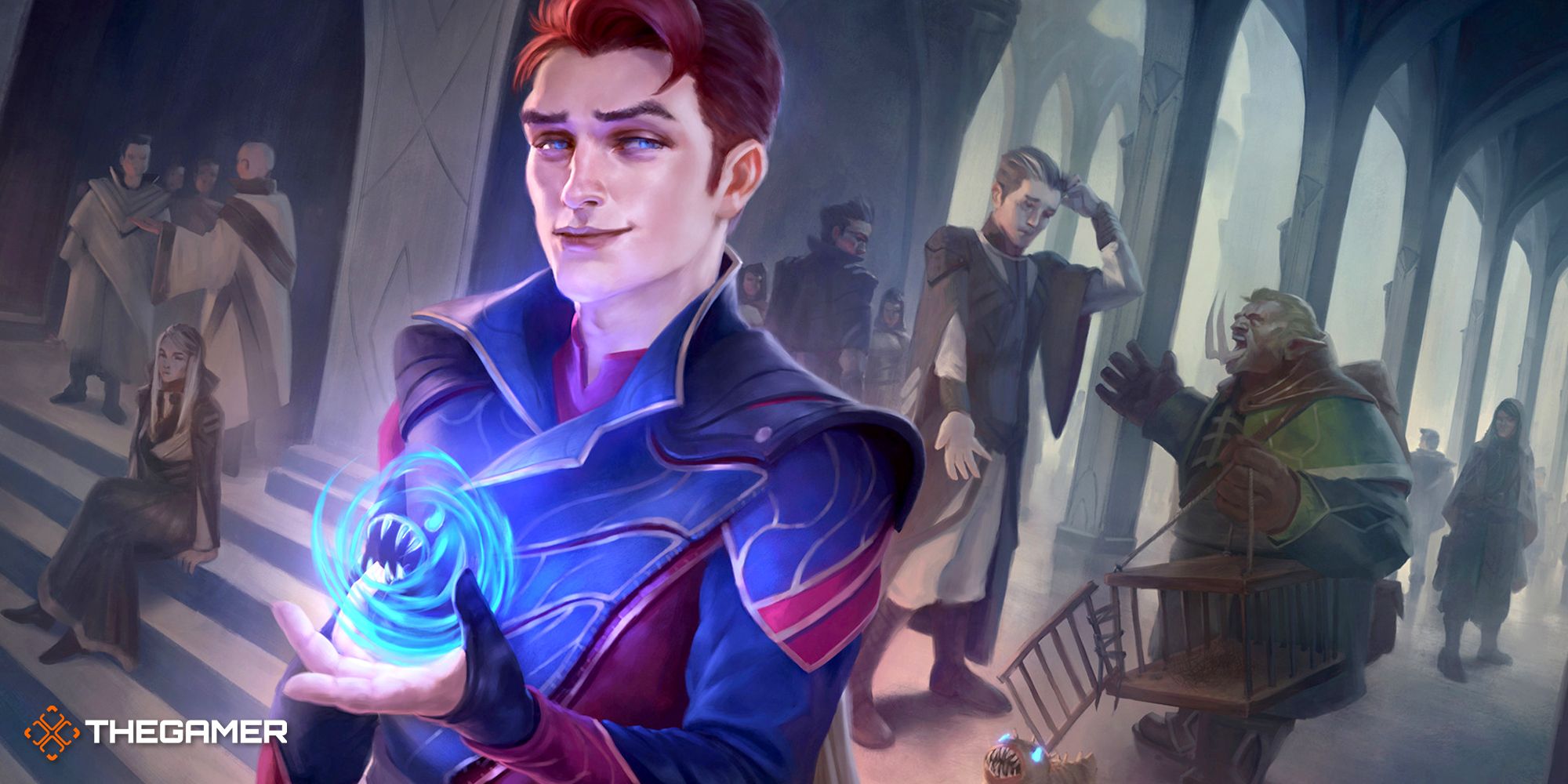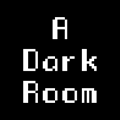Dungeons & Dragons: How To Build A School Of Enchantment Wizard

Quick Links
- School Of Enchantment Wizard Features
- Best Species For A School Of Enchantment Wizard
- Best Ability Scores For A School Of Enchantment Wizard
- Best Starting Equipment For A School Of Enchantment Wizard
- Best Spells For A School Of Enchantment Wizard
Most Wizards in Dungeons & Dragons are intellectuals, but none get as far into their own heads as students of the School of Enchantment. In fact, these wizards are so cerebral that they easily get into the minds of others, hypnotizing them into immobility, making them forget recent events, or even tricking them into attacking their friends.
RelatedDungeons & Dragons: How To Build A School Of Illusion Wizard
Create your own reality from thin air as an illusionist wizard.
PostsStudying at the School of Enchantment doesn’t mean you can’t take the direct approach and cast Fireball every now and again, but why bother defeating your enemies when you can trick them into beating themselves? If you’re a wizard who adheres to the adage of mind over matter, you’ve come to the right place.
School Of Enchantment Wizard Features
Mind Sculpt by Michael C. HayesEnrolling in the School of Enchantment at level two begins with a number of perks. First, Enchantment Savant makes it easier and cheaper to copy enchantment spells into your spellbook, and Hypnotic Gaze lets you hypnotize one creature you can see within five feet. If they fail their Wisdom saving throw, they become charmed, have their speed drop to zero, and are incapacitated.
You can use Hypnotic Gaze in combat to effectively remove an enemy from the fight, but it requires your action to maintain the charm effect, so it takes you mostly out of the fight too.
Instinctive Charm at level six provides a defensive reaction. Whenever a creature makes an attack against you within 30 feet, you can divert that attack to another creature you can see. The attacker makes a Wisdom saving throw, and if they fail, the attacker must instead target the creature closest to itself.
This ability can still cause an enemy to hit an ally if they're the closest available target, so it's still a good idea to place yourself far away from combat to avoid being hit in the first place.
Split Enchantment at level 10 allows you to target two creatures with an enchantment spell that would normally only have a single target. Finally, Alter Memories at level 14 allows you to make a creature unaware that it's being charmed whenever you cast an enchantment spell, and you can cause it to forget a number of hours equal to one plus your Charisma modifier if you so desire.
Best Species For A School Of Enchantment Wizard
Vedalken Humiliator by Jehan ChooAnyone can be a wizard, so feel free to play as any species and expect to be reasonably effective. There are a few species that offer benefits to wizards, however. Here are a few suggested species to get you started.
Autognome
Wizards have trouble getting armor class, so having a base 13 AC is a big deal. Built For Success gives you a d4 for a few rolls, and resistance to poison and advantage against being paralyzed and poisoned are good defensive buffs.
Dwarf
Hill dwarf will give you some extra hit points per level, which can really help a wizard's fragility. Mountain dwarf offers medium armor proficiency.
Fairy
Faerie Fire isn't on the wizard spell list and can help your team find invisible creatures. Being able to fly without using a spell slot is great, but not crucial to your success as a wizard. Enlarge/Reduce is a nice spell to have too, but again, not crucial.
Githzerai
You can generally learn all the spells taught through Githzerai Psionics, but they're still nice to have, and they free up your studies to focus on other enchantments. Mental Discipline and Psychic Resilience help keep your wizard safe from charms, fright, and psychic damage.
Goblin
Darkvision is always great, as is Charm resistance and being able to disengage and hide as a bonus action. Fury of the Small is a good way to shore up your damage.
Hadozee
Hadozee Dodge is effectively like having more hit points, which is very helpful for a frail wizard. Glide and Dextrous Feet are neat, but nothing you can't get with spells.
Half-Elf
Half-elf offers three stat boosts, which can be useful for a class that wants a slightly larger ability score than most wizards. Charm resistance is nice to add to your wisdom saving throw, and Darkvision and two more skill proficiencies are nice too.
Human
You could go standard human to have a lot of stats (could be helpful to keep your Constitution and Dexterity up), but you could also go variant human for a free starting feat. Medium Armor Mastery of Toughness could help here.
Kenku
Curiously, School of Enchantment wizards have to make more skill checks than other wizards to hit those charms. Kenku not only offers two skill proficiencies, but Kenku Recall also provides advantage on a check you are proficient in. Mimicry and Expert Duplication are less useful but still fun.
Owlin
Flying, Darkvision, and stealth proficiency are always good things, although you could just turn into a mouse if you need to be stealthy.
Shifter
Another class that helps with hit points, going beast mode provides temporary hit points, potential bonuses to your AC, movement speed, or advantage on Wisdom saving throws. Darkvision is always a plus.
Tortle
Having 17 armor class is probably better than most wizards will ever get, even with Mage Armor. Being able to hold your breath is also useful for underwater campaigns, but hardly crucial.
RelatedDungeons & Dragons: How To Build A Way Of Mercy Monk
Become a dealer of life and death as this powerful monk subclass.
PostsBest Ability Scores For A School Of Enchantment Wizard
Willbender by Svetlin VelinovYour spells are your life, and those are empowered by your Intelligence. Focus on bringing this ability score to 20 as soon as possible.
Constitution and Dexterity are next in line. Constitution helps with your concentration saving throws (a common problem with enchantment spells) and hit point total, while Dexterity provides you with some armor class.
Strength and Wisdom can be safely ignored, but Alter Memories actually requires a Charisma check to work. If you find yourself the face of the party, consider throwing a few points into Charisma.
If you're using D&D's point buy system, a good starting ability score spread might look something like this:
Strength
Dexterity
Constitution
Intelligence
Wisdom
Charisma
8(-1)
14(+2)
16(+3)
16(+3)
8(-1)
12(+1)
Best Starting Equipment For A School Of Enchantment Wizard
Willbreaker by Dan ScottWith a focus on magic, wizards don't start with much in terms of equipment. A quarterstaff will deal more damage than a dagger, but you're not likely to have much strength to wield it effectively. Pick the dagger, but use it as a last resort.
Focus on your spells instead of weapons. We'll talk spells in the next section below.
An arcane focus is way more convenient than a component pouch, so pick that.A scholar's packand an explorer's pack offer some provisions, but neither will give you everything you need to immediately start adventuring. Pick the scholar's pack for the ink and parchment, but prepare to spend some money on a bedroll.
Your spellbook is your most important possession. Keep it secret. Keep it safe.
RelatedDungeons & Dragons: All Cleric Subclasses, Ranked
Not all clerics are created equal, so we've ranked all the cleric subclasses in the Player’s Handbook and subsequent sourcebooks.
PostsBest Spells For A School Of Enchantment Wizard
Entrhralling Hold by Colin BoyerYour spells are your most important resource as a School of Enchantment wizard. You're likely to pick up a lot of them over the course of your campaign. Here are a few spells to keep an eye out for, or spells that you should choose whenever you level up.
Try to get the most out of your Enchantment Savant feature by paying to learn those spells and learn other spells through leveling up.
Spell Level
Spell Name
Cantrip
- Fire Bolt
- Friends
- Mage Hand
- Mind Sliver
- Minor Illusion
First Level
- Absorb Elements
- Charm Person
- Find Familiar
- Silvery Barbs
- Sleep
- Tasha's Hideous Laughter
Second Level
- Hold Person
- Invisibility
- Suggestion
- Tasha's Mind Whip
Third Level
- Counterspell
- Dispel Magic
- Enemies Abound
- Fast Friends
Fourth Level
- Charm Monster
- Confusion
- Dimension Door
- Raulothim's Psychic Lance
Fifth Level
- Geas
- Hold Monster
- Synaptic Static
- Wall of Force
Sixth Level
- Contingency
- Disintegrate
- Mass Suggestion
- Otto's Irresistible Dance
Seventh Level
- Prismatic Spray
- Reverse Gravity
- Teleport
Eighth Level
- Dominate Monster
- Feeblemind
- Power Word Stun
Ninth Level
- Power Word Kill
- Wish
Next: Dungeons & Dragons: A Complete Guide To Your RPG Adventure













